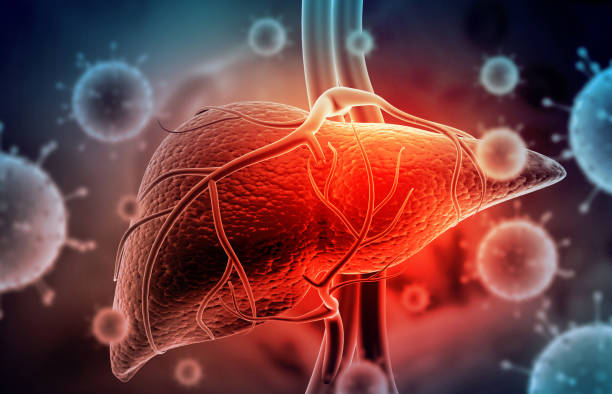Hepatitis, derived from the Greek word “hepar,” meaning liver, refers to inflammation of the liver. This complex condition poses a significant global health challenge, affecting crores of people in India and the world. In this comprehensive article, Dr. Rohit Goyal, a renowned gastro Doctor in Dwarka, Delhi, shares his insights on hepatitis, including its types, symptoms, treatment, and prevention.
Common Causes of Viral Hepatitis
Hepatitis A
Hepatitis A is transmitted through the ingestion of contaminated food and water. Symptoms include fever, fatigue, loss of appetite, nausea, and jaundice. Hepatitis A is a self-limiting infection, and recovery leads to lifelong immunity.
Hepatitis B
Hepatitis B is transmitted through contact with infected blood, unprotected sex, and from an infected mother to her newborn during childbirth. Most individuals with chronic Hepatitis B remain asymptomatic, while few can have severe liver complications. Vaccination is a key preventive measure against Hepatitis B.
Hepatitis C
Hepatitis C is spread through contact with infected blood, often resulting from intravenous drug use or unsafe medical procedures. Chronic Hepatitis C causes cirrhosis and liver cancer.
Hepatitis D
Hepatitis D is also known as delta hepatitis. It is a unique virus that can only infect individuals already infected with Hepatitis B. It is transmitted through contact with infected blood and is related to more severe liver disease. Hepatitis B vaccination can prevent this type of hepatitis.
Hepatitis E
Hepatitis E is mostly transmitted through the ingestion of polluted water and is most common in regions with inadequate sanitation. It is usually a self-limiting infection, but in pregnant women, it can cause severe complications. No specific antiviral therapy exists for Hepatitis E.
What are the causes of Hepatitis?
The following are the causes of Hepatitis:
- Viral Infections, Hepatitis Viruses: A, B, C, D, and E, each hepatitis virus has its unique characteristics, modes of transmission, and impact on the liver.
- Non-viral Causes
- Excessive alcohol intake is a leading cause of hepatitis, for both acute and chronic liver inflammation. It raises the effects of viral hepatitis and increase the risk of liver cirrhosis and cancer.
- Certain Medicines and exposure to toxins induce hepatitis-like conditions. Drug-induced hepatitis are acute or chronic.
- In autoimmune hepatitis, the immune system mistakenly attacks the liver, leading to inflammation. This chronic condition requires immunosuppressive therapy to reduce symptoms and prevent liver damage.
What are the symptoms of Hepatitis?
The symptoms of hepatitis include:
- Fatigue
- Jaundice (yellowing of the skin and eyes)
- Abdominal pain
- Nausea and vomiting
- Loss of appetite
- Dark urine
- Pale-colored stools
How is Hepatitis diagnosed?
A good Gastro specialist performs following tests to diagnose the presence of hepatitis:
- Blood Tests Blood tests for used for diagnosing hepatitis and determining its type. Specific markers and viral load measurements help your doctor assess the severity of the infection and make treatment-related decisions.
- MRI & Ultrasound: Imaging techniques such as ultrasound, Fibroscan, CT scans, and MRI provide detailed images of the liver, helping to evaluate its size, structure, and the presence of any abnormalities.
- Liver Biopsy: In some cases, a liver biopsy is also done to assess the extent of liver damage.
What is the available Treatment for Hepatitis in India?
As per Dr. Rohit Goyal, These are treatment options for hepatitis in India:
- Antiviral Medicines: For viral hepatitis (B and C), antiviral medicines are prescribed for the purpose of suppressing viral replication and preventing liver damage.
- Immunizations: Vaccination is very powerful in preventing hepatitis A and B. Universal vaccination programs have reduced the occurrence of these infections in many regions.
- Medical Care: Medical care involves treating the symptoms, maintaining proper nutrition, and avoiding substances that damage the liver, such as alcohol, tobacco etc.
Does it also have any Complications and Long-term Effects
Hepatitis if not treated can cause Liver Cancer and Liver Cirrhosis
Cirrhosis
Untreated or severe cases of hepatitis lead to cirrhosis, a condition characterised by scarring of the liver tissue. Cirrhosis impairs liver function and can ultimately result in liver failure.
Liver Cancer
Chronic hepatitis, especially hepatitis B and C, increases the risk of developing liver cancer. Regular monitoring and early detection and treatment can save lives and reduce this risk.
How can Hepatitis be prevented?
It can be prevented through:
- Vaccination is a must in order to prevent viral infection hepatitis A and B.
- Safe Injection Practices: Safe injection practices, among individuals who use intravenous drugs, are essential for preventing the spread of hepatitis B and C.
- Safe Sex Practices: Practicing safe sex, including the use of barrier methods, can help prevent the transmission of hepatitis B and other sexually transmitted infections.
- Hygiene and Sanitation: Ensuring access to clean water is a must and proper hygiene and sanitation practices are necessary for preventing the spread of hepatitis E and other waterborne diseases.
Last Thoughts
Hepatitis, with its causes and impact, remains a global health concern. From viral infections to non-viral causes, it can affect human life badly. For any individual, proper monitoring, regular checkups and immediate medical attention when experiencing any of the symptoms mentioned above can assist in treating this severe disease. With timely vaccinations, such infections are prevented and the decline in numbers shows that people are now getting aware in some areas.
If you ever feel any symptoms, you can consult Dr Rohit who has his speciality in Gastroenterology and his clinic is in Dwarka, Delhi













